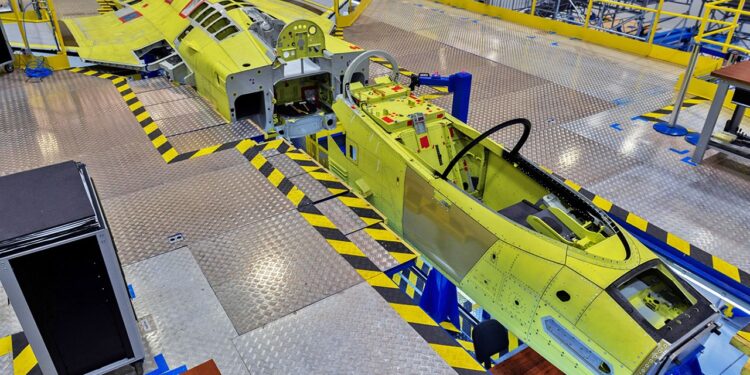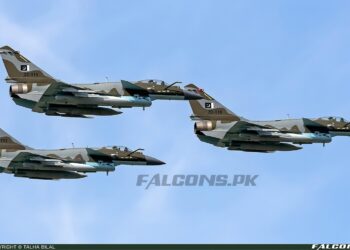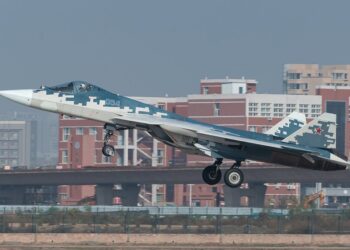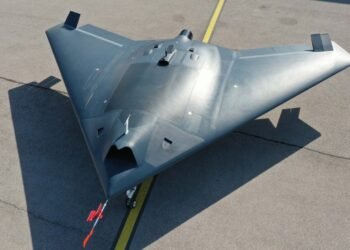By Ricardo Meier
Saab and Embraer officially inaugurated the final assembly line for the Gripen E fighter at the Gavião Peixoto facility. The plant is where the Brazilian planemaker produces the C-390 Millennium airlifter. The ceremony was attended by the president of Brazil Luiz Inácio Lula da Silva (PT) and the CEOs of Embraer Defense & Security, João Bosco Costa Júnior, and of Saab, Micael Johansson.
The final assembly line aims to produce 15 of the 36 fighters ordered by the FAB from Saab and therefore has its own building, where various aerostructures such as the front and rear fuselage will be joined together, in addition to components such as landing gear, engine and avionics.
Parts are shipped from suppliers, but also from Saab factories in Sweden and Brazil. The forecast is that the first Gripen E (single seat) assembled in Brazil will be delivered from 2025. Unlike initially planned, the eight units of the Gripen F (two seats) will be produced in Sweden.
“The start of operations of the Gripen production line marks our commitment to transfer technology and knowledge to Brazilian industry. Here, we will produce 15 of the 36 aircraft currently contracted to the Brazilian Air Force. The aim is also to produce here any future Gripen orders from Brazil as well as other countries,” said Micael Johansson, President and CEO of Saab.
“Today we celebrate not only the inauguration of the Gripen fighter production line, but also the success of the collaboration between Saab and Embraer, which grows stronger every day with the common goal of serving our customer, the Brazilian Air Force. Since the beginning, Embraer has played a relevant role in the Gripen programme, participating, for instance, in the development of the Brazilian version of the twin-seater aircraft,” said Bosco da Costa Junior, President and CEO of Embraer Defense & Security.
In addition to the production line, Embraer will also use its own facilities to carry out engine tests, painting and fuel calibration for the fighter jet.
New markets
The narrative of politicians and company executives was aligned with transforming the Brazilian unit into a spearhead for the production of more aircraft in the future. Not only to supply new orders for Gripen from the Brazilian Air Force, but to meet possible agreements with neighboring countries.
“We want Brazil to become an export hub to Latin America and potentially other regions,” said Johansson.
The FAB already has four F-39E Gripen fighters in addition to a fifth supersonic jet used in the tests at Gavião Peixoto. This same Tuesday, two other aircraft that arrived by ship in Brazil from Sweden took off from Navegantes to Embraer facilities.






